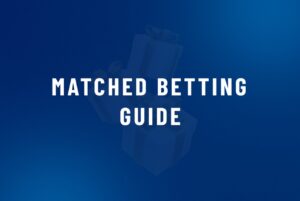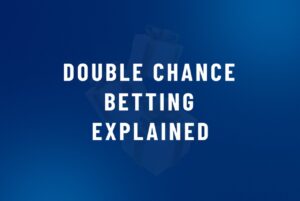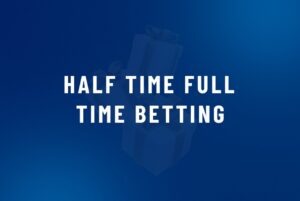Dropping Odds: A Complete Guide for UK Punters
In this guide, we’ll break down everything you need to know about dropping odds – from the reasons odds drop, to how you might use the info in your betting strategy, and the potential pitfalls to avoid.
Introduction: What Are Dropping Odds?
If you’ve ever been browsing through betting markets – whether for the Premier League, Cheltenham Festival, or Wimbledon – you might have noticed something curious happening to the odds. One minute, a horse is 5/1. Next minute, it’s 7/2. Or a football team that was 2/1 to win suddenly shifts to 6/4.
This phenomenon is known as dropping odds.
Put simply, dropping odds means the price on a selection is getting shorter. In decimal odds, the number goes down (e.g. 3.00 → 2.50). In fractional odds, the fraction reduces (e.g. 5/1 → 7/2).
But what’s going on behind the scenes? Why do odds drop? And should punters chase these moves or steer clear?
Odds Basics: Understanding Prices Before They Drop
Before diving into dropping odds, let’s ensure you’re crystal clear on what odds actually represent.
How Odds Reflect Probability
Odds show how likely a bookmaker believes an outcome is.
For example:
- Decimal Odds 3.00 → implied probability = 33.33%
- Fractional Odds 2/1 → implied probability = 33.33%
The shorter the odds, the more likely the outcome is deemed.
So if a horse’s odds drop from 5.00 (4/1) to 3.50 (5/2), it suggests the market believes it has a better chance than before.
Why Do Odds Drop? The Main Reasons
Odds don’t move randomly. When you see prices shifting, it’s because something has triggered a change in how the market perceives an outcome’s likelihood.
Here are the main drivers behind dropping odds:
1. Weight of Money – Market Demand
The most common reason is sheer weight of money.
If a flood of bets arrives on a particular outcome, bookmakers:
- Adjust the odds downward to limit liability.
- Try to balance their books by offering better prices on other outcomes.
Example:
- Heavy betting on Liverpool to beat Chelsea pushes odds from 2.10 → 1.85.
Even if nothing new has happened on the pitch, sustained betting pressure alone can shift the price.
2. New Information
New facts can instantly impact betting markets:
- A star player is declared fit.
- A horse works superbly on the gallops.
- Weather conditions change, favouring certain runners.
Example:
- Heavy rain on race day leads punters to back mud-loving horses, shortening their odds.
Bookmakers react quickly because sharp punters pounce on fresh info.
3. Professional Money (Sharp Money)
Professional punters – often dubbed “sharps” – bet in large sums when they see value.
Their stakes can move markets quickly. Bookmakers watch sharp money closely because:
- It’s usually well-informed.
- It signals the true odds might have been mispriced.
Example:
- A lower-league football match attracts large bets on the away side, hinting at inside info or mispriced odds.
4. Trading Activity
In modern betting, traders and syndicates look to lock in profits by betting on both sides of a market at different odds.
This trading can trigger sudden odds movements if:
- Huge sums get matched (learn more on Matched Betting) on exchanges like Betfair.
- Bookmakers adjust to reflect exchange prices.
5. Bookmakers Copying Each Other
No bookmaker wants to leave prices hanging if rivals have moved. Once a few firms shorten odds, others often follow suit.
Example:
- A horse drops from 6/1 → 7/2 on major sites, prompting all other firms to shorten their odds in line.
Dropping Odds in Practice: Examples from UK Betting
Let’s bring it to life with real-world UK betting examples:
Football Example
- Match: Man Utd vs Aston Villa
- Opening odds: Man Utd 1.80
- News: Aston Villa’s star striker injured in training
- Market reaction: Heavy money comes for Man Utd
- Odds drop to: 1.55
Punters who backed Man Utd early at 1.80 now hold value compared to the new odds.
Horse Racing Example
- Race: Cheltenham Festival – Champion Hurdle
- Opening odds: Constitution Hill 3/1
- Market hears excellent gallops reports
- Heavy ante-post bets placed
- Odds drop to: 2/1
Early punters lock in better prices, while latecomers pay the shorter odds.
Tennis Example
- Match: Wimbledon first round
- Opening odds: Player A 2.10
- Rumours emerge Player B has an injury
- Odds drop to: Player A 1.70
News leaks and market reacts fast.
Should You Chase Dropping Odds?
This is the million-pound question for punters: If odds are dropping, should you rush to back the same selection?
Advantages
- Indication of value: The market might have spotted an edge.
- Potential profit opportunity: Early prices can offer bigger returns if you got in before the drop.
Risks
- Late to the party: If you’re backing AFTER odds have dropped, the value might already be gone.
- Market overreaction: Sometimes odds crash purely from hype, only to drift back later.
- Chasing prices: Emotionally chasing dropping odds can lead to bad discipline and overbetting.
Golden rule: Don’t back something just because the odds dropped. Ask yourself:
- Why are odds dropping?
- Is there new info or just hype?
- Is the new price still value?
How to Track Dropping Odds
Punters use various tools to spot dropping odds:
Odds Comparison Sites
Sites like Oddschecker and OLBG show live odds movements across multiple bookies.
- Check “odds shortening” lists.
- Look for significant differences between bookmakers.
Betting Exchanges
Betting exchanges like Betfair reflect market sentiment in real-time.
- If the lay price keeps shortening, odds are dropping.
- Exchange markets often move faster than bookmakers.
Alerts & Notifications
Some odds services let you set alerts if odds drop by a certain percentage.
Example:
- “Notify me if Arsenal’s odds drop by more than 10%.”
Practical Tips for Using Dropping Odds
- Be early: The biggest value comes before the drop, not after.
- Do your research: Verify why odds have dropped. Look for team news, weather, or injury updates.
- Don’t panic: Just because odds drop doesn’t mean you must bet. Avoid FOMO (fear of missing out).
- Compare prices: One bookie might be slow to react, offering better odds even after the drop elsewhere.
- Keep records: Track your bets to learn whether chasing drops helps or harms your profit.
Common Mistakes with Dropping Odds
- Blindly following odds movement. Dropping odds are a clue – not a guarantee of a winner.
- Overbetting. Excitement around dropping odds can push punters to stake more than they planned.
- Ignoring value. A dropped price might no longer offer value. A horse shortening from 6/1 to 2/1 might now be overpriced rather than value.
Mini Case Study
Event: Grand National
- Early favourite: Horse A at 14/1
- Heavy reports of excellent training gallops
- Odds drop rapidly to 8/1 over two days
- Late punters rush in at 8/1
- On race day, Horse A finishes 5th
Lesson: Odds dropped due to hype and solid gallop reports. Still, no guarantee of winning. Early backers at 14/1 got a good value position, but the result didn’t go their way.
Dropping Odds & Responsible Gambling
It’s crucial to stay disciplined:
- Don’t bet money you can’t afford to lose.
- Don’t chase dropping odds emotionally.
- Keep records and evaluate your results over time.
Betting should remain entertainment, not a way to “beat the market.”
Final Thoughts: A Tool, Not a Crystal Ball
Dropping odds are an invaluable signal for punters, revealing shifts in market opinion. Whether triggered by news, professional money, or simple hype, they can point towards where the smart money might be going.
But remember: Dropping odds are a clue, not a guarantee.
If you combine odds movements with solid research, you’ll put yourself in a better position to spot genuine value – and avoid being swept along by the crowd.
Happy punting – and may your odds always drop in your favour (before you place your bet!).
Where to go next on our site
- Our Betting Glossary and betting terms explained for the UK
- Best betting sites in the UK – tested and verified reviews of the best bookmakers in the UK,
- Best free bets offers – clear analysis of self-tested welcome offers for new customers,
- Football betting guides – bookmakers reviews on football and soccer betting.
Safer‑gambling resources
- GAMSTOP self‑exclusion – register free to block online gambling accounts. (Gambling Commission)
- National Gambling Helpline (GamCare) – 0808 8020 133, 24/7. (GamCare)
- NHS: Help for problems with gambling – official support and clinic info. (nhs.uk)
- GambleAware – advice, tools and signposting to treatment. (GambleAware)
Compliance note on scope: This guide focuses on Great Britain under the Gambling Act 2005, regulated by the UK Gambling Commission. If you’re in Northern Ireland, check local arrangements before you bet.
This guide was created with AI assistance and reviewed by a human editor to ensure accuracy and clarity. It is intended for informational purposes only and does not encourage gambling.
FAQs About Dropping Odds
Do dropping odds mean a horse or team will definitely win?
No. Dropping odds mean the market thinks they have a better chance. Upsets still happen.
Can odds go back up after dropping?
Yes. Odds can drift back if the market overreacted or if new information reverses sentiment.
Is it better to bet early or wait?
- Early: You might catch higher odds before they drop.
- Late: You have more info but often shorter prices.
It’s a balance. Many punters split their stakes to cover both possibilities.







